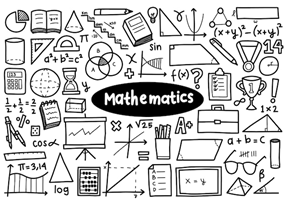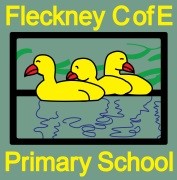Mathematics

How do we teach Maths at Fleckney School?
Aim
Our aims in Maths are for children to:
• Become fluent in the fundamentals of mathematics, including through varied and frequent practice with increasingly complex problems over time, so that pupils develop conceptual understanding and the ability to recall and apply knowledge rapidly and accurately.
• Reason mathematically by following a line of enquiry, conjecturing relationships and generalisations, and developing an argument, justification or proof using mathematical language
• Solve problems by applying their mathematics to a variety of routine and non-routine problems with increasing sophistication, including breaking down problems into a series of simpler steps and persevering in seeking solutions.
Planning and Delivery of Maths
Maths in EYFS Baseline assessment is completed on entry in:
Number and Shape, Space and Measures. This informs the teacher’s planning in the Autumn term. In addition to the statutory Foundation Stage curriculum, teachers place a big emphasis on “physical” Maths. Continuous provision allows children to independently reinforce previously taught Maths concepts. This is provided on a daily basis. Children are assessed largely through observation. Evidence is collated in a learning journey.
KS1 and KS2
Throughout our school, teachers plan from the White Rose Maths schemes of learning (a mastery approach to Maths teaching). This allows our teachers to create a yearly overview with a suggested teaching time for each block of learning. Teachers adapt this overview to suit the needs of their cohort.
Weekly plans consist of small steps progression for the three aims of the curriculum – fluency, reasoning and problem-solving. In addition to this, teachers use mathematical talk and varied fluency questions to assess their children’s understanding. They also allow children the opportunity to apply their understanding, often at the end of a lesson during the plenary.
Questions are designed to develop mathematical language and help children to explain their ideas. The questions depict concrete, pictorial and abstract methods. Maths activities are differentiated to provide a range of challenge levels.
KS2
Children can select the challenge that best suits their understanding and are in control of their own learning. Teachers closely monitor to ensure children are choosing activities pitched at the right level.
Arithmetic
Every week, children are taught arithmetic skills. After a short teaching input, children are asked to practise these skills in a short timed test. The children’s results are recorded centrally so that staff can track and monitor progress. We know that, over the past two years, children who achieved 75%+ on their arithmetic paper, reached the overall expected standard in Maths.
Feedback and Assessment
Children mark their own work with green pens and therefore receive instant feedback on their work. They are given time to correct their mistakes and reflect upon their learning with a green pen comment. This helps to address misconceptions within the lesson.
Teachers annotate their plans to record those children who have mastered the lesson objective as well as those who need further support to meet the lesson objective. This support can be provided in the way of an extra lesson, intervention during assembly or small group work within the next lesson or with a teacher/teaching assistant at another time.
Each term, children take summative assessment tests that provide a standardised score. These scores help teachers to track children’s attainment and progress in Maths. Test scores are recorded in a school database. This database provides analysis of how cohorts, groups and individuals are performing.
Resources to support Maths learning Children have access to online Maths resources to support their learning both in and out of the classroom. These include: Education City, Mymaths and Times Table Rockstars. We know that these resources are popular with the children and that they have a huge impact on their Maths learning. In each classroom, there is a Maths resource box. This box contains a variety of Maths equipment that children can use to support their independent learning.
